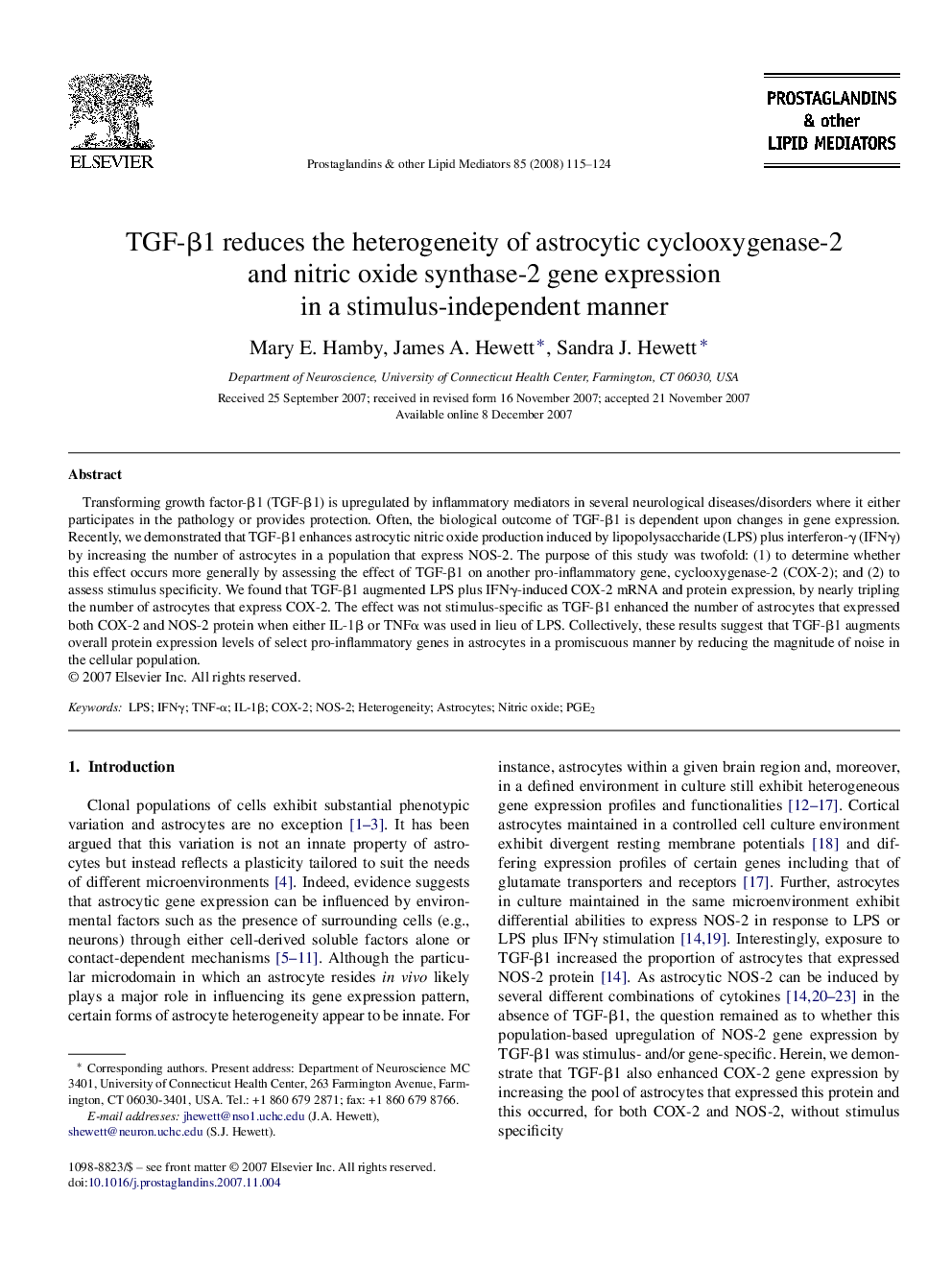| Article ID | Journal | Published Year | Pages | File Type |
|---|---|---|---|---|
| 2019949 | Prostaglandins & Other Lipid Mediators | 2008 | 10 Pages |
Abstract
Transforming growth factor-β1 (TGF-β1) is upregulated by inflammatory mediators in several neurological diseases/disorders where it either participates in the pathology or provides protection. Often, the biological outcome of TGF-β1 is dependent upon changes in gene expression. Recently, we demonstrated that TGF-β1 enhances astrocytic nitric oxide production induced by lipopolysaccharide (LPS) plus interferon-γ (IFNγ) by increasing the number of astrocytes in a population that express NOS-2. The purpose of this study was twofold: (1) to determine whether this effect occurs more generally by assessing the effect of TGF-β1 on another pro-inflammatory gene, cyclooxygenase-2 (COX-2); and (2) to assess stimulus specificity. We found that TGF-β1 augmented LPS plus IFNγ-induced COX-2 mRNA and protein expression, by nearly tripling the number of astrocytes that express COX-2. The effect was not stimulus-specific as TGF-β1 enhanced the number of astrocytes that expressed both COX-2 and NOS-2 protein when either IL-1β or TNFα was used in lieu of LPS. Collectively, these results suggest that TGF-β1 augments overall protein expression levels of select pro-inflammatory genes in astrocytes in a promiscuous manner by reducing the magnitude of noise in the cellular population.
Related Topics
Life Sciences
Biochemistry, Genetics and Molecular Biology
Biochemistry
Authors
Mary E. Hamby, James A. Hewett, Sandra J. Hewett,
